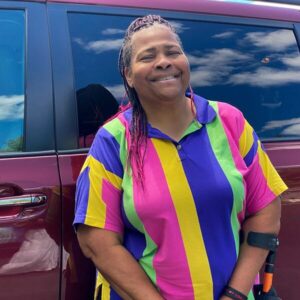One of the top reasons why people choose Help Hope Live over GoFundMe is concern over whether fundraising will impact their state-based benefits. Thanks to our nonprofit’s unique advantages, the funds raised in honor of a client are managed by Help Hope Live, which means that they are typically not considered personal income or assets to that individual.
Why is this advantage so important for people facing a catastrophic illness or injury? It’s easy to understand when you delve into the broken “safety net” and its idiosyncrasies.
Disability Benefits by the Numbers
According to this article:
10 million people received disability benefits in 2019
1 in 4 people receiving disability benefits were living in poverty
38% earned less than $1,000 per month
Two-thirds of disability applicants are denied
48,000 filed for bankruptcy while waiting for benefits from 2014-2019
Not Sustainable
Administrators acknowledge that the disability benefits system is meant as a “partial wage replacement,” not a full-time sustainable income. If an individual’s wages were low before they experienced a medical crisis, they may be entitled to only a very small benefits amount.
During the lengthy and sometimes fruitless process of securing benefits, many applicants contend with significant physical, emotional, and financial burdens. That’s why so many individuals turn to Help Hope Live to start medical fundraising campaigns that won’t jeopardize their ability to receive or qualify for these benefits.
Getting Benefits During COVID-19
The article tells the story of a mother’s fight to get illness financial assistance when she was suddenly diagnosed with multiple life-impacting medical issues. With a weakened immune system, Chelsy was frequently sick—and at just 30 years old, she realized that she could no longer work.
It took Chelsy an entire year to secure disability benefits from the Social Security Administration. The single mom was awarded less than $975 per month to support herself and her young daughter.
“I started realizing the odds were stacked against me.”
Chelsy was so desperate to provide for her family that she accepted a minimum-wage part-time job without benefits—the only position she could find that would accommodate her frequent medical issues and absences.
“The job filled the gap where the disability checks fell short.”
When the COVID-19 pandemic began, Chelsy lost her part-time job. Because she is receiving disability benefits, she is ineligible for unemployment.
A Benefits System at War
Faced with a shortfall to get what they need to heal, live, and thrive, individuals with disabilities who want to work must carefully navigate a benefits system at war with itself.
As the article explains, you must be unable to work to collect disability benefits. To collect unemployment benefits, you must be “ready and willing to work.”
While the system appears to encourage benefits recipients to return to work, many recipients cannot do so without earning too much to continue to qualify for their benefits.
Accessing Resources
At Help Hope Live, we understand how frustrating it can be to navigate the “safety net” that falls short for so many individuals and families. We have two resources to share to assist with injury and illness financial assistance:
Ready to Work
If you would like to start a new job or return to work while navigating the benefits system, you need an ally. Our partner Josh Basile, Esq., can provide free, personalized guidance to Help Hope Live clients who are hoping to return to work.
Watch our Hope Talk on returning to work and submit an application to get free, personalized help from Josh:
Fundraise to Fill the Gaps
Regardless of your relationship with work or your plans for the future, we believe that fundraising can provide a critical source of illness financial assistance. Fundraising may help you fill the gaps between what your insurance and benefits can do and what you truly need to heal, live, and thrive.
If you’re interested in learning how medical fundraising with Help Hope Live can provide a financial safety net without disrupting your benefits, fill out a short application today:
Written by Emily Progin








